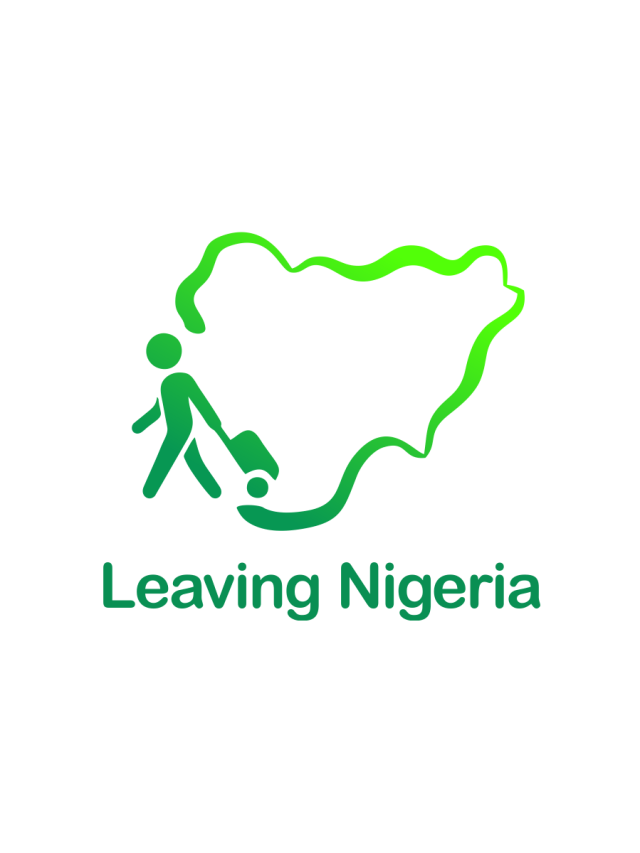
Russia Work Visa: Everything You Need to Know
Earlier this year, Russia re-introduced its work visa with relaxed rules in many cases. The reason for this happens to be the serious labour shortages the nation is facing in important industries like IT, healthcare, engineering, and construction. To tackle this, Russia is actively inviting skilled professionals from around the world to fill the gaps in its labour market.
This visa is a game-changer, especially for Nigerians looking for better opportunities abroad. If you have always wanted to leave for greener pastures, then you cannot afford to miss this opportunity. This visa provides a straightforward and legal way to relocate and live in one of the world’s largest economies, which is now very eager to welcome skilled workers.
Living in Nigeria isn’t getting any easier. Imagine having the chance to grow your career, earn a good income, and explore a new culture, all while being in demand for your skills. Sounds good, right?
Below we’ll break down how this visa works, how you can qualify for it, and what steps you need to legally leave for Russia through its work visa.
What Is the Russia Work Visa?
The Russia work visa is a program that is designed to attract qualified professionals to work legally in Russia. It comes in two main categories, each with its own benefits and requirements. The Regular Work Visa and the Highly Qualified Specialist (HQS) Visa.
1. Regular Work Visa
This is the standard option for foreign workers. To qualify for this visa, you’ll need a valid job offer from a Russian employer. The visa is at first issued for 90 days, but don’t worry, it can be extended once you start working. While it’s straightforward, this visa has fewer perks compared to the HQS visa.
2. Highly Qualified Specialist (HQS) Visa
The HQS visa is the premium choice for skilled professionals. It’s valid for up to three years and comes with several advantages:
- To maintain this visa, you must earn at least 2 million rubles a year. This means more money for you.
- It allows you to move in with your spouse and kids.
- This visa also makes it easier to get permanent residency.
If you qualify for the HQS visa, the application process will be much smoother with less paperwork to deal with. Employers usually take care of most of the paperwork, making the process easier and less stressful. Also, this visa allows you to work in in-demand industries like IT, healthcare, and engineering, giving you the chance to build a stable and fulfilling career. It is the best visa type for Nigerians and Africans leaving for Russia.
Who Can Apply for This Visa?
Applying for the Russia work visa starts with meeting specific requirements. This program is only open to professionals with the skills and qualifications the nation needs most. Here’s what you need to know:
Eligibility Requirements
- Job offer: You must have an official job offer from a Russian employer. Employers play an important role in the application process, especially for the Highly Qualified Specialist (HQS) visa.
- Qualifications and experience: Your skills must match the job requirements. Having the right degree, certifications, and experience in your field is very important.
- Minimum salary (HQS Visa): For the HQS visa, you need to secure a role with an annual salary of at least 2 million rubles.
Reasons Why HQS Visa Is Best For Nigerians
The Russian Highly Qualified Specialist (HQS) visa is a great opportunity for Nigerians interested in working abroad. It comes with several perks that make it worth considering. Here’s a quick rundown:
ALSO READ:
5 Practical Ways to Japa As An Investor and Start Afresh Abroad
1. Long-Term Validity
The HQS visa gives you up to three years in Russia. This is relatively enough time to settle into your job and build a stable life. Unlike short-term visas, you won’t have to worry about frequent renewals. This allows you to focus on your career and personal goals.
2. Family Inclusion
One of the biggest advantages of the HQS visa is that it lets you bring your family along. Your spouse and children can join you in Russia, so you don’t have to be apart from your loved ones while building a better future.
3. Permanent Residency
The HQS visa offers you more than just a chance to work in Russia. It’s also a means to obtain permanent residency in Russia. You and your family can apply for residency, giving you the security and freedom to build a long-term future together in Russia.
Industries and Professions That Are in Demand
Russia is looking for professionals in industries that are vital to its economy. Some of the top in-demand sectors are:
- Information Technology (IT)
It is one of the easiest fields for skilled workers to enter because it’s in high demand worldwide. Job roles in IT include Software developers, data analysts, and cybersecurity specialists. Platforms like HeadHunter.ru and JobRussia are excellent places to begin your job search.
- Healthcare
There’s a strong demand for doctors, nurses, specialists in medical technology, and other healthcare professionals across Russia, especially in regions with fewer resources. If you have experience in healthcare, your skills could make you a great fit.
- Construction and Engineering
Russia’s ongoing infrastructure projects create a steady demand for professionals such as Civil, mechanical, and electrical engineers, Project managers, and skilled construction workers. These roles often come with competitive pay and opportunities for career growth.
- Education
Teaching is another great option, particularly for English language instructors. Many schools and universities are looking for native or fluent English speakers to fill these positions.
Finding Jobs in Russia
Here’s how you can get started:
- Online Job Boards: Websites like ru, SuperJob, and Avito often feature job listings for international workers.
- Recruitment Agencies: Agencies like GOINGlobal and Russia Jobs focus on helping foreign professionals find positions in Russian companies.
- Networking: Joining online professional groups or forums can help you connect with employers and other expats who are already working in Russia.
How to Apply for The Russia Work Visa
Getting a Russian work visa requires that you follow several steps to ensure everything goes smoothly. Here’s a simple guide to walk you through the process:
Step 1: Secure a Job Offer
First, find an employer in Russia who is willing to hire you. Your employer will be crucial in securing your visa, so this is the most important step. You can explore job offers on platforms like HeadHunter (hh.ru), LinkedIn, Indeed Russia, and Glassdoor.
Step 2: Secure an Invitation Letter
After you receive a job offer, your employer will request an official invitation letter for you from the Russian Ministry of Interior. This letter is compulsory for your visa application.
Step 3: Complete the Visa Application
Visit the Russian visa application portal and complete the online form. Be sure to enter details exactly as they appear on your official documents to avoid any delays.
Step 4: Submit Required Documents
Prepare the necessary paperwork, including:
- A valid passport (with at least two blank pages).
- Recent passport-sized photographs.
- Proof of health insurance (if applicable).
- HIV test results (a mandatory requirement for long-term visas).
- The invitation letter from your employer.
Step 5: Pay the Visa Fees
Pay the required fees, which usually range from 30 to 500 EUR, depending on the type and length of your visa.
ALSO READ:
11 Proven Ways to Leave Nigeria as a Professional and Work Abroad
Tips To Ensure A Successful Application
- Make sure all your documents are current: Double-check the expiration dates on your passport and certifications.
- Avoid common mistakes: Missing documents, incomplete forms, or mismatched details are often the cause of delays or rejections.
- Get health insurance early: Take care of this in advance to avoid any last-minute problems.
- Ask for help: Consider working with experienced visa agents or consultants who know the ins and outs of Russian work visa requirements.
Challenges You May Face in Russia
The Russia work visa opens up many opportunities, but moving to a new country also comes with challenges. Knowing what to expect can help you prepare and settle in more smoothly.
1. Language Barriers
Russian is the main language, and English isn’t widely spoken in many areas. This makes simple tasks like grocery shopping, asking for directions, or understanding official documents challenging. Learning some basic Russian before you move can make things much easier and help you adjust more smoothly.
It is advised that you start learning to speak Russian at least six months before you migrate. Technology has made things easier now. You can go online and find helpful videos and eBooks. You can invest in language classes or use apps like Duolingo or Busuu to get started.
2. Cultural Adjustment
Adjusting to a new culture can be a difficult task, but it’s also an opportunity to grow. In Russia, you might notice that social customs and traditions are quite different from those in Nigeria. At first, Russians may seem reserved around strangers, but once trust is built, they’re often warm and welcoming. Take your time to settle in, stay open-minded, and don’t shy away from connecting with locals. Joining community events and getting involved can make you feel more at home and help you create meaningful relationships.
3. High Cost of Living in Major Cities
Living in cities like Moscow and Saint Petersburg can feel pricey, especially when it comes to renting and getting around. In Moscow, rent for a one-bedroom apartment in the city centre can range from 40,000 to 70,000 rubles per month. Saint Petersburg is a bit more affordable, though it’s still relatively high. For newcomers, this may seem overwhelming, but there are ways to keep your costs in check. As such, it is okay to find a place to live outside the city center. It’s often more budget-friendly. Living in smaller cities is more affordable, and rent and groceries can be 30–50% cheaper compared to Moscow
4. Immigration Systems
Dealing with visas and residency in Russia can be tricky, and even small mistakes with documents or deadlines can create problems. To avoid headaches:
- Stay on top of your paperwork, like visa extensions and work permits, by keeping everything well-organized.
- If you’re unsure about anything, reaching out to an immigration consultant or agency can save you time and stress.
Make sure you plan your budget carefully. Take into account rent, transportation, food, and utilities.
SI Masters Scholarship for Global Professionals in Sweden, 2025
Practical Tips To Help You Adapt
- Connect with local Nigerian communities: seek and join local Nigerian communities in Russia to find support, make connections, and get helpful advice. You can find these groups on platforms like Facebook, WhatsApp or Twitter.
- Prepare for the weather: Russian winters can be very harsh, especially in northern cities. Try to invest in good-quality clothing to keep warm.
- Plan your finances: Make a detailed budget that includes rent, food, and transportation. Try to cut back on unnecessary spending until you’re financially secure.
- Stay open-minded: Take the time to learn and appreciate Russian culture and traditions. Embracing these differences will help you settle in more easily.
Final words
The Russia work visa is a valuable opportunity for Nigerians who are aiming to grow their careers and create a brighter future for their selves. With its long-term perks, the chance to bring your family, and a path to residency, it gives you the stability and opportunities you need to take the next big step in life.
With the right preparation, you can confidently navigate the visa process. Begin by researching job opportunities that match your skills or seek guidance from visa experts to help you smoothly go through the application process.
Discover more from Leaving Nigeria
Subscribe to get the latest posts sent to your email.



